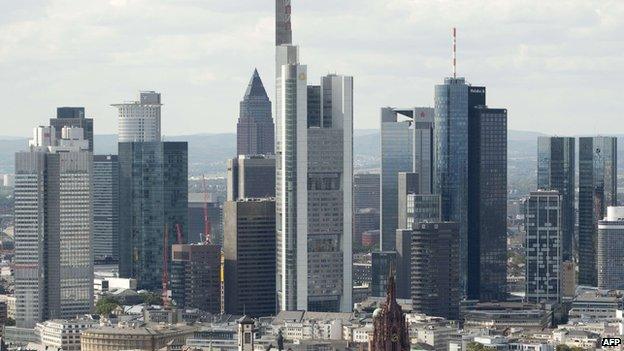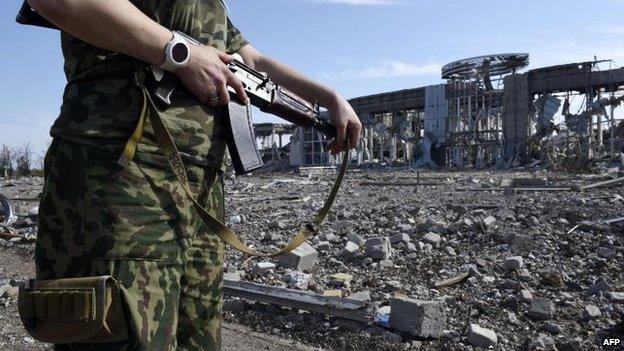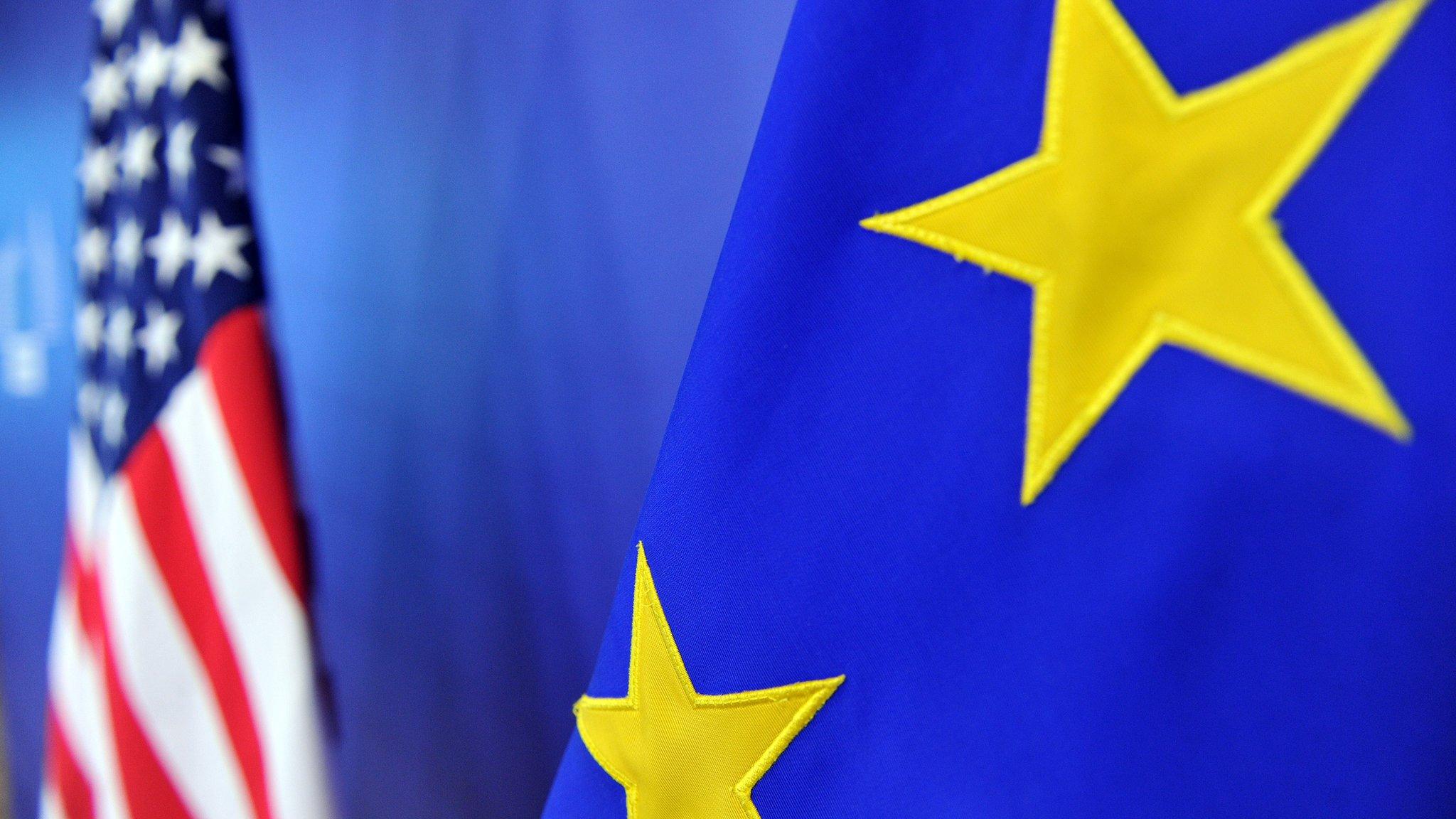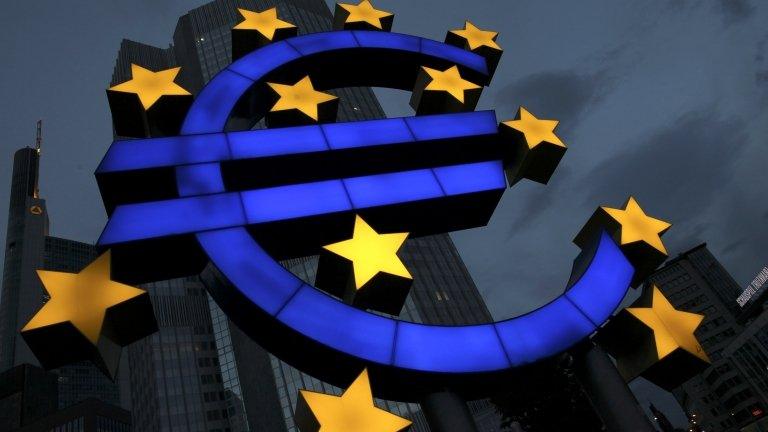Eurozone business growth slows in September, PMI survey finds
- Published

Germany's service sector growth picked up, but expansion in its manufacturing sector slowed
Eurozone business growth cooled in September for a second consecutive month, dropping to its slowest pace since December, a survey suggests.
The latest Markit Composite Purchasing Managers' Index, external (PMI) fell to 52.3 from August's 52.5.
A reading above 50 indicates growth.
Modest growth in Europe's biggest economy, Germany, provided some cheer, but the eurozone was brought down by stagnation elsewhere, particularly in France, where PMI fell to 49.1.
Manufacturing across the eurozone fared worse than the service sector, with the PMI reading falling to 50.5, the lowest measure since July of last year.
"The survey paints a picture of ongoing malaise in the eurozone economy," said Chris Williamson, Markit's chief economist.
"With growth of output and demand slowing, employment once again failed to show any meaningful increase. Such torpor meant prices continued to fall as firms fought for customers, which will inevitably heighten concerns that the region is facing deflation."
He added that the European Central Bank (ECB), which is faced with the task of warding off deflation, would be "disappointed" by the PMI numbers.
'Anaemic demand'
On Monday, ECB president Mario Draghi said the bank was ready to use "additional unconventional instruments" to help boost the flagging eurozone economy, "should it become necessary to further address risks of a too prolonged period of low inflation".

The Ukraine crisis and its knock-on effects could affect eurozone growth, Markit says
Earlier this month, the European Central Bank introduced new measures to stimulate the area's flagging economy.
As well as launching an asset purchase programme, through which it will buy debt products from banks, the ECB cut its benchmark interest rate to 0.05%.
Business growth in France slumped to a three-year low, with both the manufacturing and service sectors suffering.
"Anaemic demand continues to hold back the private sector," said Jack Kennedy, a senior economist at Markit, "with further price cutting insufficient to prevent new orders from falling".
In Germany, service sector growth rebounded to a two-month high, but manufacturing growth recorded its slowest growth for 15 months.
Markit economists also raised concerns about the crisis in Ukraine, and related Russian sanctions, which they warned could have further adverse effects on business in Europe.
"The danger is that the ECB's efforts to stimulate the economy will prove ineffective in the face of such headwinds, which are exacerbating already-weak demand," said Mr Williamson.
- Published21 September 2014

- Published18 September 2014

- Published4 September 2014

- Published17 September 2014
